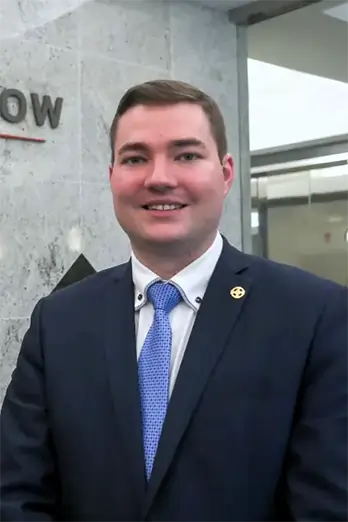
Dealing with insurance providers can be exhausting even under the best circumstances. However, if you’ve been injured in a car accident, trying to negotiate with an insurance adjuster can be especially difficult. Unfortunately, after an accident, you’ll need to be in communication with either your own insurance provider or the insurer of the at-fault party, and there are things you should keep in mind to ensure your needs are met and you’re not settling for an insufficient settlement.
If you want to know more about your options after a car accident or how to file a personal injury claim, call us at Blaszkow Legal, PLLC today to schedule an appointment. From our offices in Alexandria, Virginia, we’re proud to serve clients throughout the region, including Fairfax, Woodbridge, Arlington, and Manassas.
The Insurance Adjuster’s Role
Each time a claim is made with an insurance company, an adjuster will be assigned to your case. Their job is to investigate the incident, determine fault, and negotiate a settlement with the claimant. They’re trying to save their company money and move on to the next case as quickly as possible.
Insurance adjusters have a lot on their plate and while they may not be maliciously trying to mislead you, they may not spend as much time as they should looking at the evidence and listening to your side of the story. Because of this, you have to take it upon yourself to ensure your needs are accounted for and you move toward a fair settlement.
Requests for a Statement
One of the first things an adjuster will do in a car accident claim is to request a statement, and you should be very careful about what — if anything — you say to them.
Why You Should Refuse
Most of the time, you should refuse to give a statement when it’s first requested. Adjusters will often contact you within a day or two of the accident and, depending on how serious it was, you may be suffering from injuries or simply the trauma of being in such an accident.
Adjusters will try to use what you say against you in order to reduce your potential compensation. They may also try to ask you contradictory questions to find holes in your statement and diminish your credibility. While you should be polite and cooperative, you do not have to give a statement at this time.
What to Say If You Choose to Give a Statement
If you do choose to give a statement (and you shouldn’t, without calling Blaszkow Legal!), there are a few things you should remember. The first thing you should do is get the contact information from the person you’re speaking with. This should include their full name, phone number, and the company they’re representing. Occasionally, insurance companies will use outside representatives to handle their cases and these outside adjusters tend to have less authority on how claims are settled.
You should also request that your statement not be recorded. When people know they’re being recorded, they can become flustered and say things they don’t mean. And, if you are recorded saying something you aren’t sure about, there is very little you can do to refute it. You should also never admit guilt and only stick to the basic facts of the incident, but you should never volunteer additional information. Keep your responses short and direct, and don’t reply to anything to which you don’t know the answer. Finally, the adjuster will want to send you a transcript of your statement to sign, but you shouldn’t sign anything until you’ve had a personal injury attorney review it.
Information You Will Be Asked to Provide
There is some information that you can and should provide to an adjuster. You can provide them with basic personal information, such as what type of work you do and where you’re employed, but you shouldn’t give them information about your work schedule or salary. You can also give them a basic account of the accident, but this should be limited to where it occurred, the time of day, what cars were involved, the type of accident, and whether there were any witnesses (though you do not have to give names or contact information for any witnesses).
The adjuster may also ask you questions about injuries you’ve sustained, but you do not have to answer them, or if you do, you should keep your answers vague. You can simply say that you’ve injured your neck and back, but you’re still receiving medical treatment and you’ll provide information at a later date.
How Legal Counsel Can Help
After a traumatic event like a car accident, you deserve time to heal, have your side of the story told, and not be pressured into making a statement or accepting a settlement that doesn’t cover your needs. If you’re in Alexandria, Virginia, or the surrounding areas of Fairfax, Woodbridge, Arlington, and Manassas and would like to speak to an experienced personal injury lawyer, call our team at Blaszkow Legal, PLLC to schedule a consultation.





